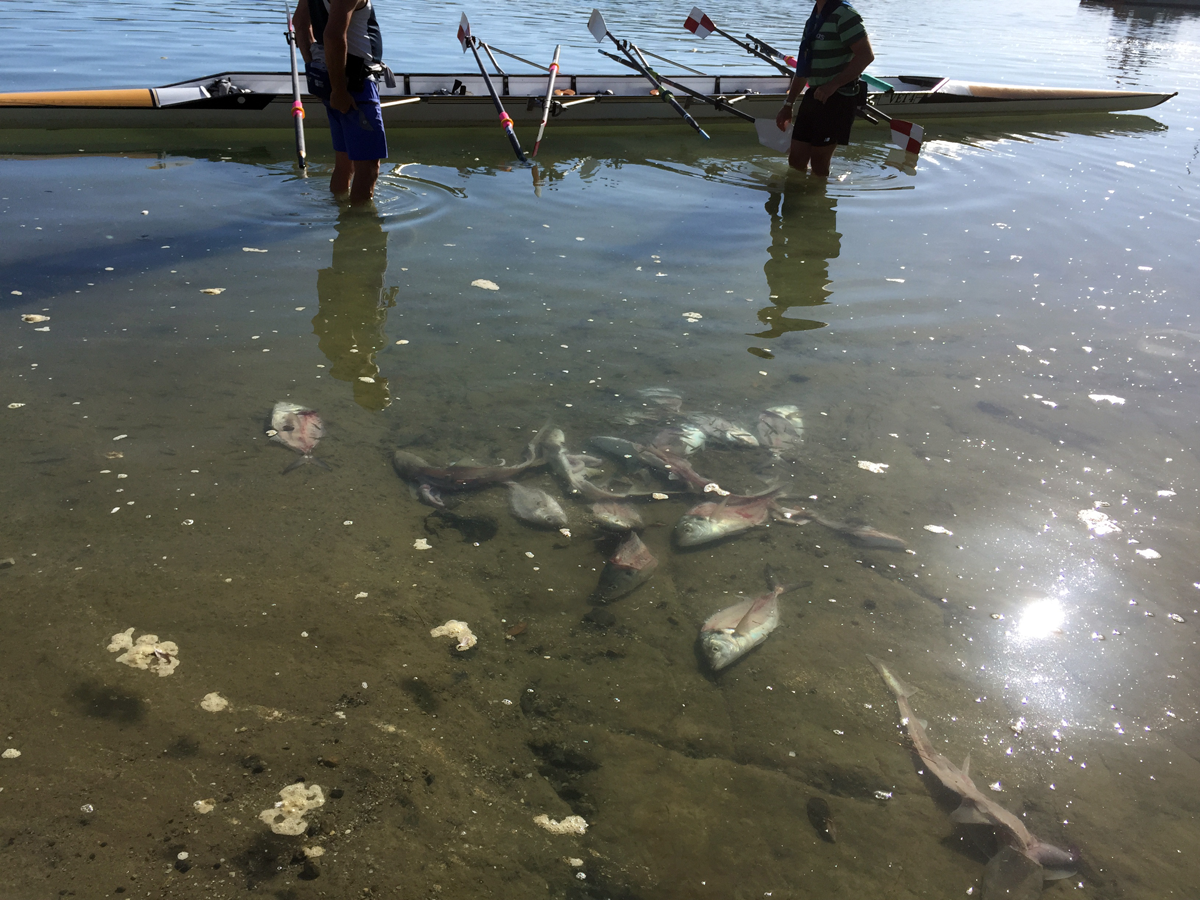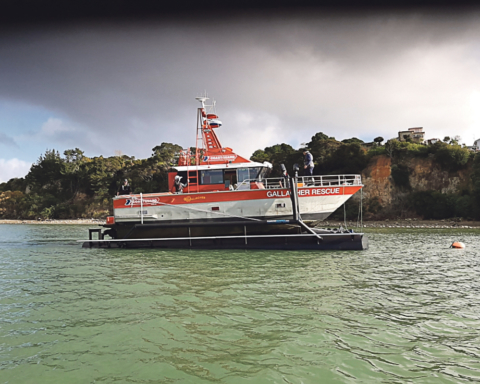Dumping fish frames at Raglan Wharf’s boat ramp is unacceptable and needs to stop, says resident Marie de Jong, who is sick of the sight of fish carcasses floating in the water.
“It’s just gross,” says the Soul Shoes owner and Silos resident, who no longer swims at the boat ramp because of it and wants council to make it an illegal practice.
Taranaki District Council hits people with an instant $400 fine for dumping fish waste and shellfish such as kina on its reserves and beaches.
“Council says it’s not illegal but you wouldn’t dump any other offcuts from processing in the harbour. You wouldn’t dump a dead cow there!”
Marie says there are always fish frames at the boat ramp whenever there is fishing. She says fishermen go home to fillet their fish and then come back with the frames to dump them.
“It’s been ongoing for three years. We live here so we see it all the time.
“Would you want to swim there?”
She says she has asked Waikato District Council to put up signs prohibiting it but they say it’s not illegal and the regional council harbour master has also told her its not his job to police it.
“It has nothing to do with anyone.
“The more people that speak out about it the better.”
Waikato District Council monitoring team leader Craig Birkett says the fine issued by Taranaki District Council is most likely issued through the Litter Act 1979.
“This Act enables councils to issue infringements where an officer observes or has reasonable cause to believe that littering has occurred in a public place.
“We make every effort to identify people that dump rubbish but we do need the community’s help in identifying those responsible. We urge people to report any dumping they see, and record any details of the vehicle involved, including the registration plate, colour, make and model of the vehicle, and the time of day so the appropriate legal action can be taken.”
Photos are best, Craig says.
“When we obtain evidence of the dumping we can issue a fine or consider court action. If someone is caught illegally dumping they are fined $400.”
Raglan Sport Fishing Club Sheryl Hart says the dumping of fish frames in public areas is not meant to happen but does, and it was difficult to police offenders.
“We don’t approve of it,” says Sheryl.
She says the fish frames are pollution and they attract sharks.
“If someone stood on them, blood poisoning from fish injuries is very high.”
Sheryl says if people were dumping frames after having filleted fish in Raglan than they were likely local offenders.
“Put them on Raglan Notice Board. Fifteen minutes later someone walks up your driveway and picks them up and you have made a friend.”
She says the club would look at organising a drop-off for fishermen from out of town where they could dispose of their fish frames instead of dumping them in the harbour.
Inger Vos











